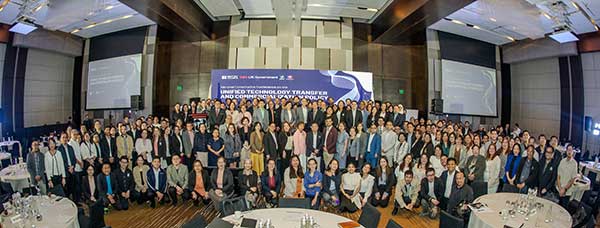
The Department of Science and Technology (DOST), in partnership with the British Council, has begun drafting a unified national policy on technology transfer and commercialisation aimed at accelerating innovation in the Philippines.
Over 200 representatives from government agencies, universities, research organizations and private enterprises gathered for a national consultative conference to shape the “Technology Transfer Policy Framework for DOST.”
The initiative, supported through the UK’s International Science Partnerships Fund (ISPF) and implemented by the British Council, builds on previous policy workshops held earlier this year in February and March.
“Without innovation, society cannot move forward,” said Lloyd Cameron, Economic and Climate Counsellor at the British Embassy Manila. “We won’t be able to address inequalities or the urgent challenges facing our world — from climate to energy and beyond. This is why technology transfer and commercialisation are essential.”
The draft policy aims to lay the foundation for a more cohesive and strategic technology transfer approach that bridges research outputs with commercial ventures and industry needs.
DOST Secretary Renato Solidum emphasized the agency’s vision of fostering innovation-led enterprises. “We are working towards establishing the Philippines as a hub for globally competitive technologies and solutions,” Solidum said.
Participants took part in a hands-on policy write shop led by UK-based consultants Dr. Irene Dal Poz and Dr. Fabio Bianchi from Oxentia Ltd., a global consultancy specializing in technology commercialisation and innovation management.
The program also featured a panel discussion on global best practices in tech transfer, with insights from the World Intellectual Property Organization (WIPO), the National University of Singapore, Origgin Singapore, and key Philippine institutions.
The final version of the Technology Transfer Policy Framework for DOST is expected to be completed in April 2025.
The project aims to enhance the country’s capacity to turn research breakthroughs into real-world solutions and economic opportunities, potentially boosting high-impact enterprises and local industries.
The conference also reinforces the UK-Philippines collaboration in science, innovation and inclusive economic development, aligning with the goals of the British Council’s broader mission.
According to the British Council, the organization operates in over 100 countries and reached 600 million people globally in 2022–23 through programs in education, culture, and the English language.




















